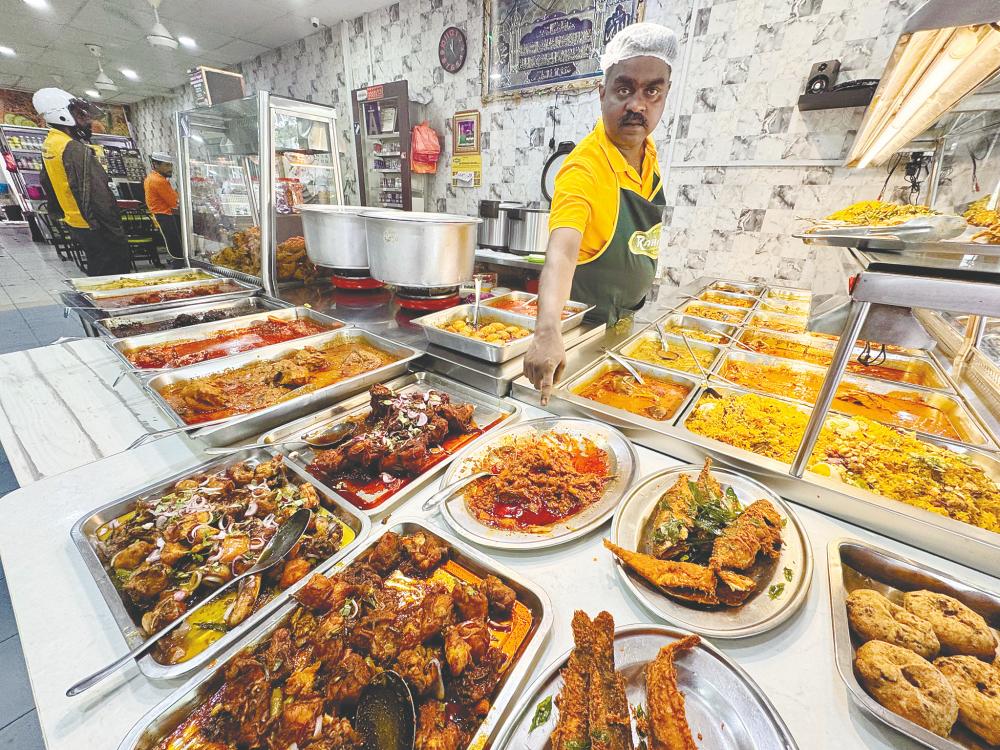PETALING JAYA: The Malaysian Muslim Restaurant Operators Association (Presma) does not support the proposal by the Johor Indian Muslim Entrepreneurs Association (Jimea) to raise food prices by 5% in 2025, said its president Datuk Jawahar Ali Taib Khan.
He added that while the financial burden caused by the rising cost of raw materials and the minimum wage increase from RM1,500 to RM1,700 is evident, raising prices would negatively impact operators and customers.
“Presma does not support Jimea’s proposal to raise food prices.
“As an organisation that serves to protect the interests of operators and customers, the measure could affect the competitiveness of restaurant operators and place an additional burden on low-income groups.”
Jawahar was commenting on a Nov 11 statement by Jimea secretary Hussien Ibrahim that some 300 mamak restaurant operators in Johor plan to increase food prices by at least 5% from next year.
He had attributed rising operating costs to the continuous increase in raw material prices.
Jawahar recommended that mamak restaurants planning to increase prices collaborate with the government to explore subsidy assistance or financial support for raw material and operational costs.
He also encouraged operators to seek and adopt more efficient cost management methods to maintain prices without burdening consumers.
“They can also hold a town hall with mamak restaurant operators and the authorities to find a solution. Presma is ready to mediate in any discussions to find balanced and fair solutions for all parties.”
Jawahar said Presma has consistently raised the issue of price hikes with the relevant ministries and while the matter is caused by the increase in the cost of commercial diesel, rental and raw materials, its members are currently absorbing the additional expenses.
“We also maintain a good relationship with the Domestic Trade and Consumer Affairs Ministry and consult them before making any price changes.”
UiTM Malaysian Academy of SME and Entrepreneurship Development coordinator Dr Mohamad Idham Md Razak said the price hike is expected to create a huge difference in consumption at the restaurants concerned.
“Since mamak restaurants are usually a go-to place to enjoy a cheaper and less formal meal, a small bump in price can lead wallet-sensitive diners to reconsider returning.
“Cost hikes, be they from energy price increases, wages or supply disruptions, create ripple effects across industries, including food.
“In turn, this pushes inflation even higher and disrupts household budgets, impacting macroeconomic stability and spending decisions.”
Mohammad Idham said increased costs for popular meals can be especially taxing on poor customers who already might spend a significant amount of their income on food.
He said price increases can cause food insecurity and lead consumers to choose inferior alternatives.
“Removing diesel subsidies has certainly driven up food prices as the cost of transport
and manufacturing immediately increased.
“Although its impact was instantaneous, it does not have to be. Markets usually change as businesses adapt to using more effective logistics and new techniques to save fuel.”
Mohammad Idham said while raising food prices is not an ideal approach, it can be justified given the rising costs of production and distribution as long as there are long-term gains in quality and accessibility.
“If the price adjustment gives equal credit to suppliers and keeps food secure, it can support the entire economy as it does for the agriculture and food industries.
“But any increase in prices should be followed by vigilance for underserved groups so that we all have access to healthy and affordable food.”









